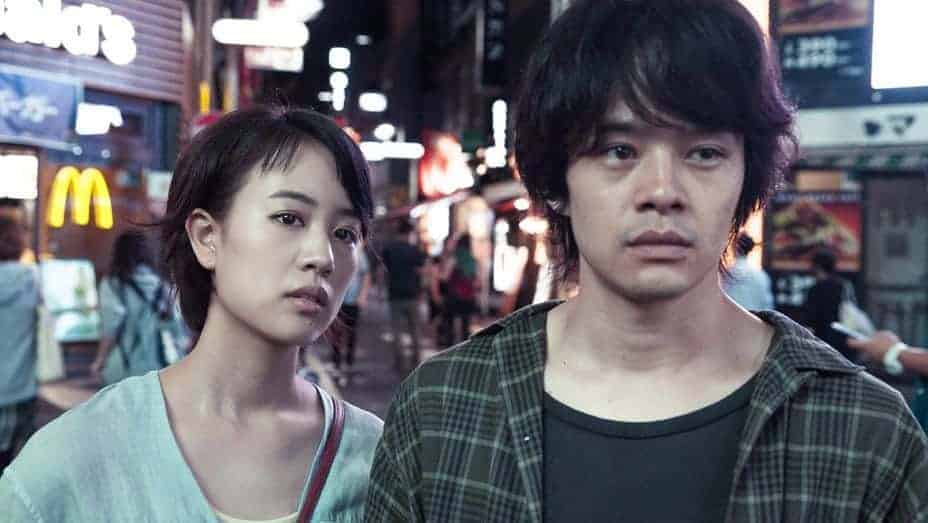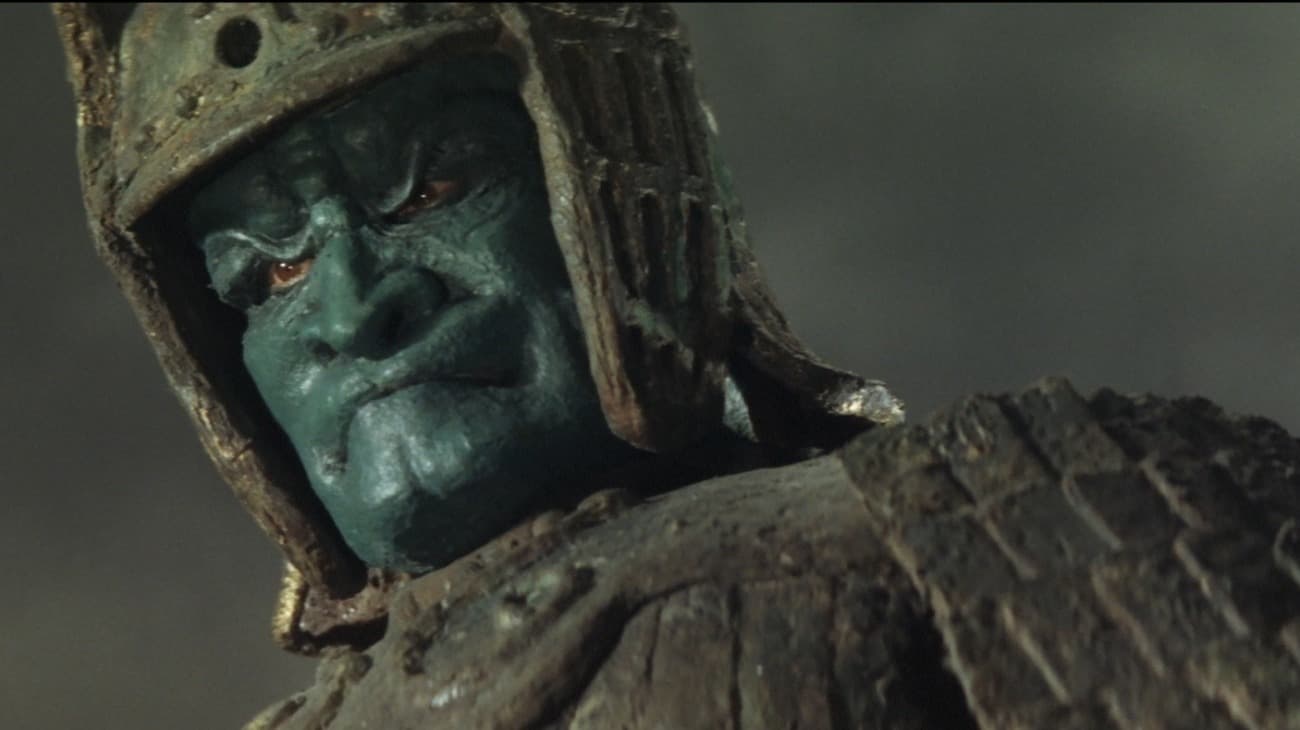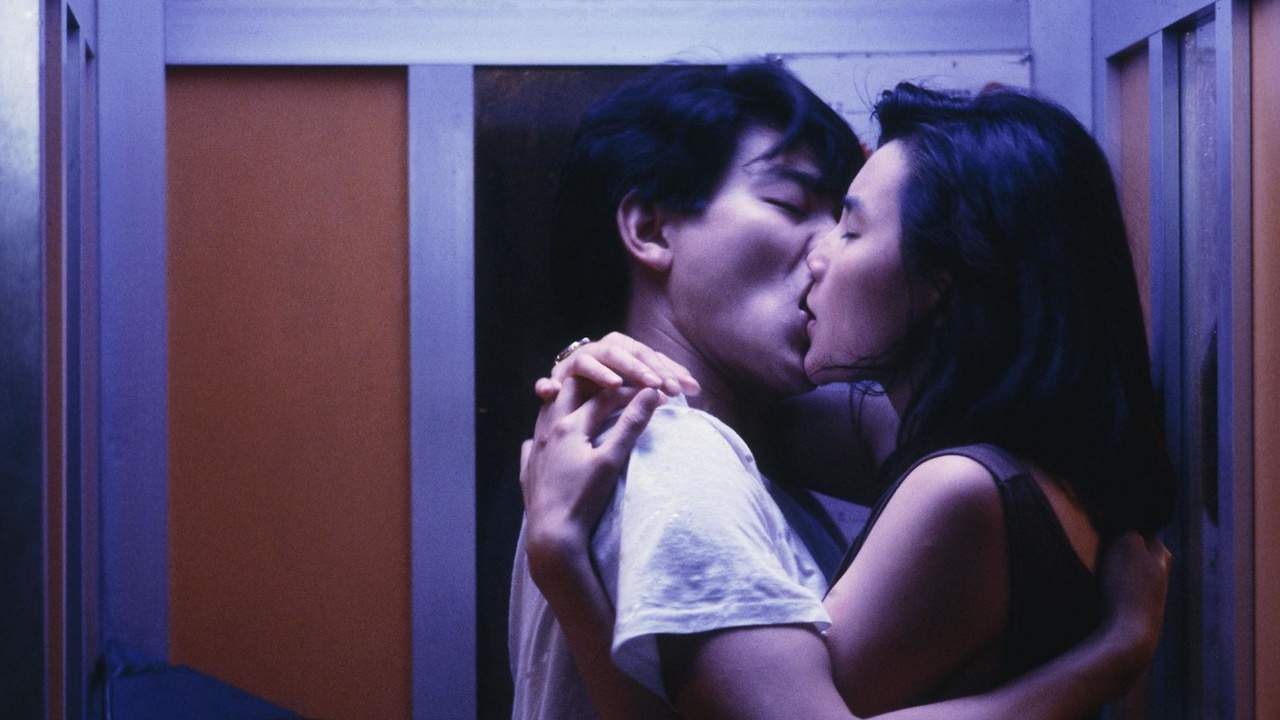Yuya Ishii's “The Tokyo Night Sky is Always the Densest Shade of Blue” (2017) is a curious film with a screenplay by Ishii based on a book of poetry by Taihi Saihate. With the majority of the action taking place in Tokyo, the tale of two lonely individuals trying to find one another may share a lot of themes with other films set in the capital, but has a style that is unique.
The Tokyo Night Sky is Always the Densest Shade of Blue screened at Japan Cuts
Mika (Shizuka Ishibashi) is a young woman working two jobs, as a nurse during the day and at a “girls bar” at night. Her night job involves her entertaining the male clients, but it is clear that neither of these professions is particularly fulfilling. She is a lonely individual, with only her pet turtle for company at home. Shinji (Sosuke Ikematsu) is struggling with the pressures of life, working temporary jobs in construction to make ends meet. He seems to have problems with anxiety, with a rapid-fire style of talking showing of his nervousness. The two of them are living parallel lives that cross unexpectedly several times. Although neither of them is looking for a relationship with the other, circumstances seem to keep bringing them together. The film is infused with the angst and nihilism that typifies much of life for modern young adults. Despite living in a city of millions, nobody pays attention to each other and people are isolated and depressed. In fact, it is only through understanding the conventions of films that you might notice that the two characters are moving closer together as they carry out their lives with barely disguised disinterest.
The poetic influence on the film is clear from early on, with much of Mika's dialogue being of a philosophical nature. She muses that there is an airship passing overhead that nobody notices. There is a great deal of ruminating on existence and relationships throughout, from both Mika and Shinji. This is further emphasised by some exceptional directing from Ishii. The use of colour shows a mastery of the cinematic form, with the recurrence of red stop lights and a peculiar blue moon playing a part in emphasising various emotions. There are several fantastic transitional shots, such as the glowing embers of a cigarette transforming into the points of light of a cityscape at night. Although it is largely a sombre contemplative affair, there are a few humorous scenes, especially involving the character of a street-singer who appears at various points throughout the film. The music perfectly contemplates the story and the cinematography is exceptional, capturing both the bustle and the beauty of Tokyo. There are so many movies set in the city or about it, that it is an impressive feat to create a film that does something original with it. Director Ishii succeeds in bringing a unique vision of this fascinating place to the screen.
It is fair to say that the movie will not be to everyone's taste. It is a little overlong for a film whose themes are well-worn at this point. However, if you understand the film as an art-work or experience, then it is enjoyable. It gives the sense of standing in a gallery appreciating photographs and savouring them rather than simply rushing past. The languid pace also plays to the production's themes of boredom and dissociation that the characters are feeling.
Shizuka Ishibashi is fantastic as Mika. Her performance perfectly captures the exhaustion and frustration of someone living in a large city. Despite her troubles, Mika is a character who is keen to never give in. A self-sufficient young woman who can handle life's travails alone, she pushes other people away and puts on a strong front. Sosuke Ikematsu is enjoyable as Shinji, whose fast-talking and nervous tics are instantly endearing. The two of them together have a great, uneasy chemistry, growing from a casual understanding of each other to something more akin to affection.
With some exceptional directing and philosophical overtones, “The Tokyo Night Sky” will certainly have an audience. It has a lot to say about the anxieties and troubles of modern city dwellers as well as a positive message on moving forward and finding meaning through human relationships. It also offers a look at the various faces of Tokyo and a sense of what it is like to live there.
















